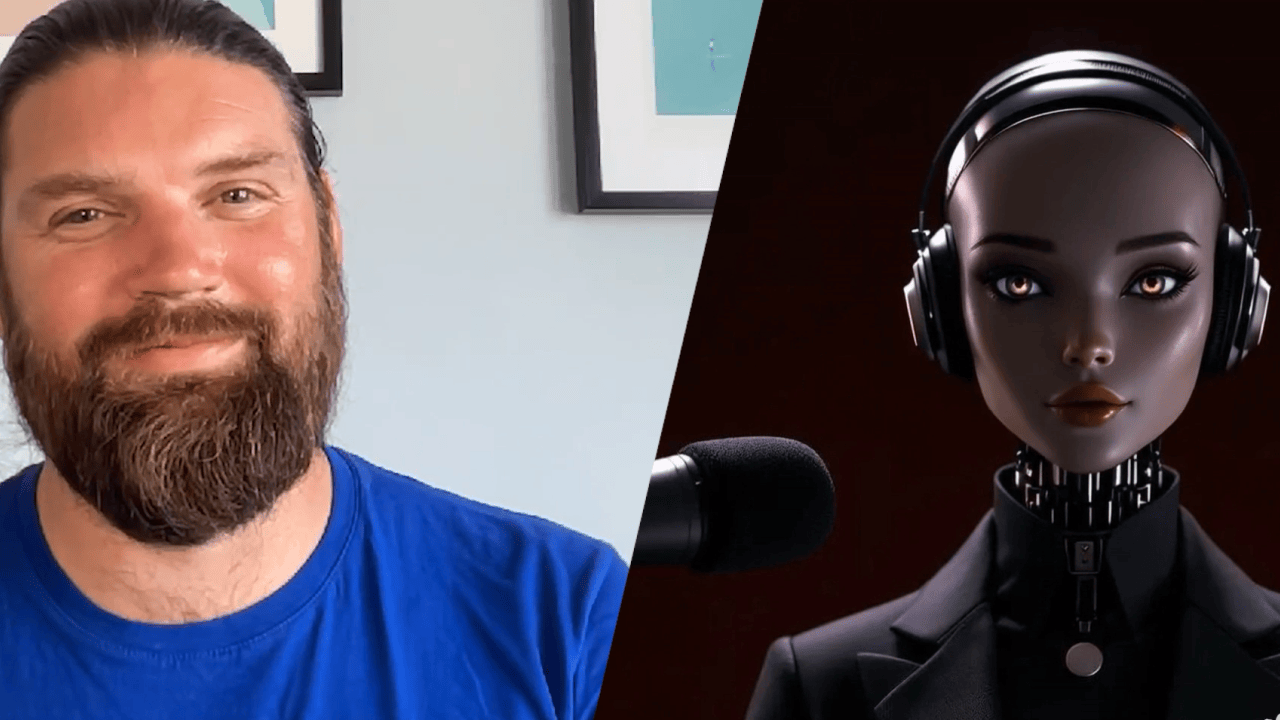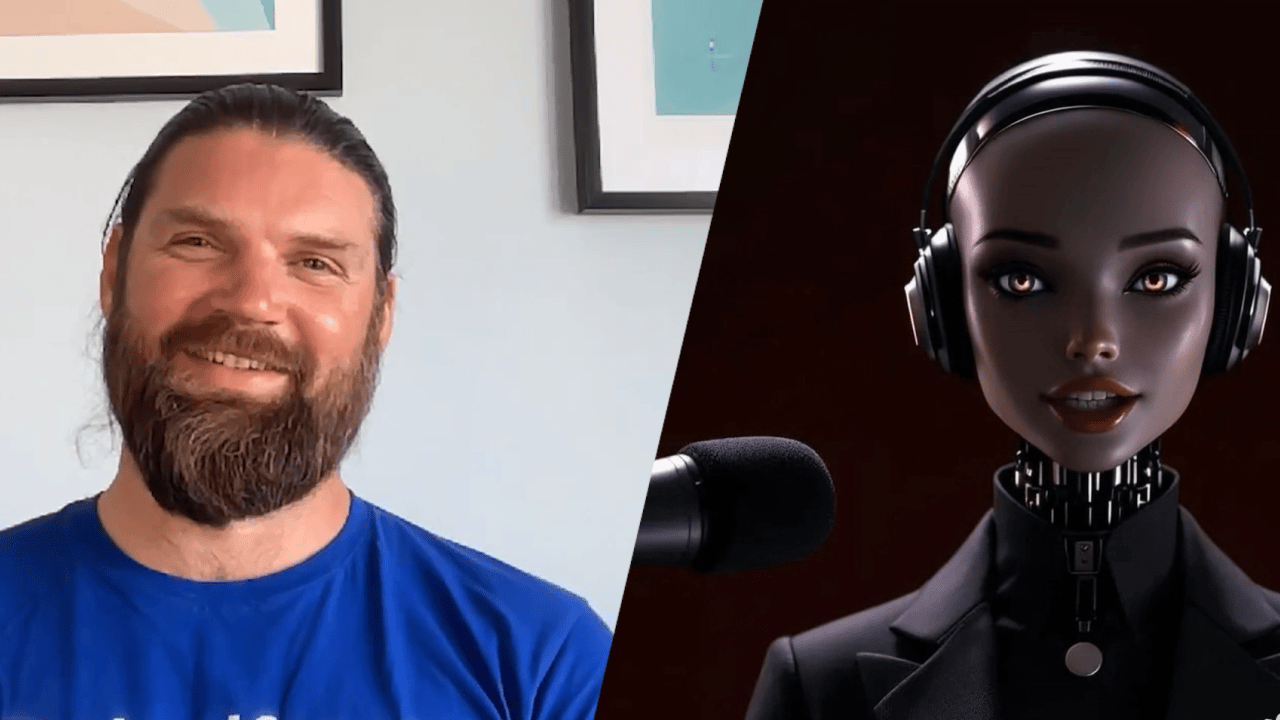
Welcome back to Marketer vs. Machine, where sparks fly and marketing myths die.
In Round 2, Dealfront’s VP of Marketing Sam O’Brien takes on the AI ‘CEO’ in a fiery debate over one of the most divisive topics in marketing: Attribution.
Should every dollar spent be directly tied to revenue? Can brand awareness really be measured? Or is chasing perfect attribution slowing your growth?
As the AI demands hard numbers and immediate ROI, Sam fights for a smarter, long-view approach — where market impact matters more than last-click credit. From dark social to regional A/B tests, this episode goes deep into how marketers can prove value without sacrificing momentum.
Forget one-size-fits-all tracking. This is about strategy, not spreadsheets. Round 2 begins now — and this one hits below the fold.
Let the fight begin.
Ready to level-up your marketing with battle-tested content strategies? Explore how Dealfront equips marketers with the tools to turn engagement into revenue: https://www.dealfront.com/solutions/marketing/
Follow Sam O'Brien: https://www.linkedin.com/in/samuelwobrien/
Connect with us: LinkedIn: https://www.linkedin.com/company/dealfront/ Facebook: https://www.facebook.com/getdealfront/ Instagram: https://www.instagram.com/getdealfront/ TikTok: https://www.tiktok.com/@dealfront X: https://x.com/getdealfront YouTube: https://www.youtube.com/@dealfront
![Sam O'Brien]()
Sam O'Brien
VP of Marketing at Dealfront
00:05 Let's argue over attribution.
00:25 Okay. Okay. So, um, look, it's very hard to measure every single thing that we do and track and Seriously, Sam, don't you think it's a bit irresponsible to spend tens of thousands without being able to say, this campaign brought in X dollars. Finance would never run like that. Why should marketing get a free pass? Yeah, it's really hard to be able to say we're spending X amount on this channel and this is what it generated.
00:54 So some channels are going to generate a return. Let's take PPC. Now we know that people are searching on Google, which results in a click, which then means we can track that click and say, hey, Google generated this much revenue. And that's amazing, right? But fractually, it's incorrect. What's actually happening is for somebody to even search the term on Google, they've already become aware. Maybe they've become aware of us. Maybe they're searching our brand terms.
01:22 or maybe they're just aware of our solution. So what we need to do is we need to invest in other channels which are not measurable. Channels like content, like branded campaigns. Let's take LinkedIn for instance. We might want to run a LinkedIn campaign without the goal of capturing conversions. Okay, and the reason we would do this is we're going to build up the awareness of our solution, of our brand into the cold audience. So at the point that they enter the buying cycle,
01:52 they will be ready to buy and hopefully we're top of mind when they enter into that decision making point. So basically, you're asking me to trust a vibe. Hope they remember us someday. Come on, Sam, I run a business. I can't take a brand uplift report to the bank if I can't tie spend to revenue. How do I justify that? Budget feels like marketing is just telling stories instead of showing proof.
02:19 So the way that we will tell the story or the way that we will show the proof is by looking at the market. Okay, let's take a market. Let's say we're focused on the, I don't know, manufacturers in Germany. Now I can identify there's a hundred thousand companies in that market. What I want to do is be influencing them. I want to be tracking how many of those hundred thousand are now visiting my website. How many are engaging with my content? How many are moving through the funnel? There's still a lot of metrics we can track.
02:48 we can track the engagement of campaigns and content and the things that we're doing without having to rely on whether or not we're getting an ROI from the individual piece of content or the individual campaign. And if we're able to track this at a market level, then we can start saying, okay, we can see when we did X here, we were able to move the needle further down the funnel. So an example would be, and something we've done in the past is,
03:17 We split the US in half and we said, okay, we're gonna run Facebook adverts on the East coast and we're not gonna run them on the West coast. Now let's see the impact it has for branded search, direct traffic and all these other channels which it's influencing even though Facebook itself wasn't getting any of the credit.
03:45 you can actually see the difference in pipeline flow. All right, I'll admit it. That's clever. So you're not just spending blindly, you're just tracking smarter than our CRM allows. Looks like attribution isn't as black and white as I thought you win. Again, Sam. I'm glad I could get you around on that one. Attribution is really challenging. And I think if we spend too much time trying to build the perfect attribution model, instead of focusing on the market and focusing on the uplift that the individual
04:15 campaigns could be having even though they're not directly getting the attribution, we'll again be in a much stronger position and it will enable us to grow more. Like sometimes attribution can be a headache and something which causes us to slow down because we just spend too much time trying to prove everything. All right, you made your point. Chasing perfect attribution might be costing us momentum. I will back off for now.



